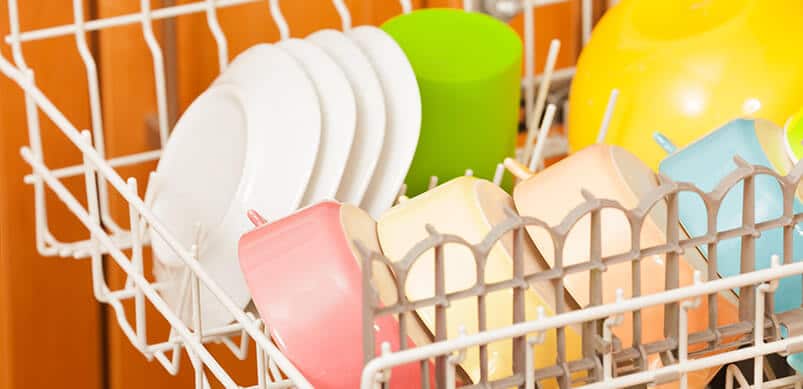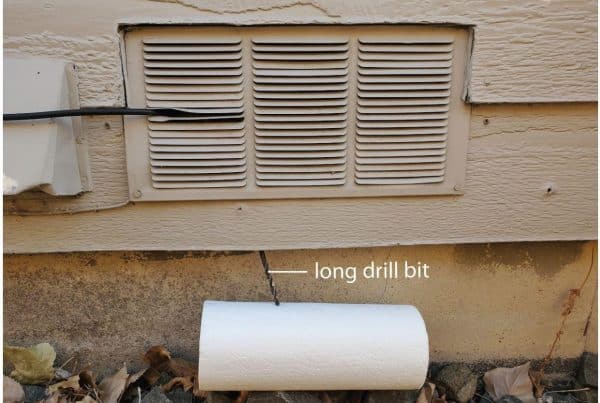Unquestionably, the dishwasher is one of the most useful and time-saving devices in our modern kitchens. It effortlessly takes care of the arduous cleaning of our dirty dishes, allowing us to focus on other essential aspects of our lives.
However, dishwashers need routine maintenance like any other piece of equipment to maintain optimal performance and a long lifespan. In this post, we’ll discuss the importance of good dishwasher upkeep and provide helpful advice on how to keep your dishwasher in great form so that you may live a more pleasant and hassle-free life.
Follow Cleaning and Maintenance Routine
For the best performance and longevity, your dishwasher must be kept clean. Regular upkeep of dishwashers guarantees that your dishes come out spotless and hinder the accumulation of residue, stains, and foul odors. To keep your dishwasher in excellent condition, we’ll walk you through a few cleaning and maintenance programs in this section.
Regular Check
The most common mistake people make when dealing with dishwashers is not regularly maintaining them. It’s essential to clean the racks regularly to ensure no food is left behind or grease build-up. You should also check the seals at least once every six months if your machine doesn’t leak or drip water when running.
Use Detergent That Complies With Your Model’s Warranty
Always use dishwashing detergents that comply with the manufacturer’s warranty guidelines. This will ensure that you’re using a product the manufacturer has approved as safe for use with their machines.
Cleaning Inside
Wash off interior walls every 1-2 years (depending on how often you use your dishwasher) with a tough sponge or cloth that is strong enough to remove food debris from crevices around the interior of the machine without damaging components such as door seals or gaskets inside the unit itself.
Loading and Unloading Techniques
Efficient loading and unloading techniques are essential for maximizing cleaning efficiency and preventing breakages. Discover valuable tips and guidelines to optimize your dishwasher routine.
Strategically arrange dishes: Ensure efficient water distribution by placing more oversized items like plates, bowls, and serving dishes on the bottom rack. Position them towards the center, avoiding overlapping or nesting that may hinder proper cleaning.
Secure, lightweight items: To prevent lightweight or oddly-shaped items like plastic containers, lids, and small utensils from dislodging and interfering with the spray arms, use specially designed clips or holders.
Pre-rinse large or heavily soiled items: If you have pots, pans, or baking dishes with stubborn food residue, consider giving them a quick pre-rinse to remove excess debris. This prevents the circulation and redeposition of food particles on other items.
Efficient Unloading Techniques:
Begin with the top rack: To prevent any drips or spills from falling onto the already-cleaned dishes below, start unloading the dishwasher from the top rack. Pay special attention when removing glassware and delicate items.
Allow dishes to cool down: Give hot dishes a few minutes before unloading them. This reduces the risk of burns and helps prevent potential breakages due to rapid temperature changes, which can lead to thermal shock.
Check for pooled water: After unloading, carefully examine the dishwasher’s interior for any water pooling. Use a dry cloth or sponge to wipe away any excess moisture, ensuring there are no lingering puddles that could promote mold or mildew growth.
Troubleshooting Common Issues
Common dishwasher problems can disrupt your kitchen routine. From leaks and subpar cleaning to strange noises, learn how to troubleshoot and resolve these issues effectively for a smooth-running appliance.
Dishwasher not starting
- Check if the dishwasher is securely plugged into the power outlet.
- Make sure the door is locked and securely closed.
- Check to see that the fuse or circuit breaker in charge of the dishwasher’s power has not blown or tripped.
Poor cleaning performance
- Ensure that dishes are correctly loaded, avoiding overcrowding and spray arms blocking.
- Check and clean the filters, spray arms, and nozzles for clogs or debris.
- Use a dishwasher cleaner to remove buildup and residue from the dishwasher’s interior.
- Ensure that you use the appropriate amount of fresh detergent and suitable for your dishwasher.
Dishes not drying properly
- Select the appropriate drying cycle and make sure the dishwasher is not overloaded, allowing proper airflow.
- If using a plastic or lightweight cycle, expect residual moisture on the dishes.
Water leakage:
- Check for any visible leakage around the dishwasher door or underneath the appliance.
- Inspect the door gasket for any damage or debris that may prevent a proper seal.
- Ensure the dishwasher is leveled correctly, as an uneven surface can cause leakage.
Strange noises during the operation
- Remove any items that may have fallen into the dishwasher and are causing noise.
- Check for loose or damaged parts, such as the spray arms or utensil basket.
- Inspect the dishwasher’s water inlet valve and motor for any issues.
When to Seek Professional Help
While many dishwasher issues can be resolved with simple troubleshooting, there are certain situations where it is best to seek professional assistance:
- If you need clarification on handling electrical components or complex repairs
- When faced with persistent or recurring problems despite attempting basic troubleshooting
- If there is a malfunction or damage to critical components like the motor or control panel
- When encountering a plumbing-related issue, such as persistent leaks or drain problems.
- Professional technicians have the expertise and specialized tools to safely diagnose and fix more complex dishwasher problems. They can provide efficient solutions and ensure the long-term functionality of your appliance.
Water and Energy Efficiency
Efficient dishwasher use can contribute to the preservation of precious resources like water and energy. Dishwashers are made to utilize water more effectively than hand cleaning, saving liters of water per cycle.
To save electricity, use energy-saving options like eco-mode or air drying. Run the dishwasher when fully loaded to make the most of its capacity. For minimally soiled dishes, select shorter cycles and skip pre-rinsing.
Conclusion:
Proper maintenance is essential for the dishwasher to last a long time and operate at its best. By following these suggestions, you can ensure your dishwasher runs properly. This includes routine cleaning and maintenance procedures and effective loading and unloading methods.
Common problems can be efficiently resolved by troubleshooting, but always get professional assistance if required. Adopt these habits to take advantage of a well-maintained dishwasher while reducing your influence on the environment.








